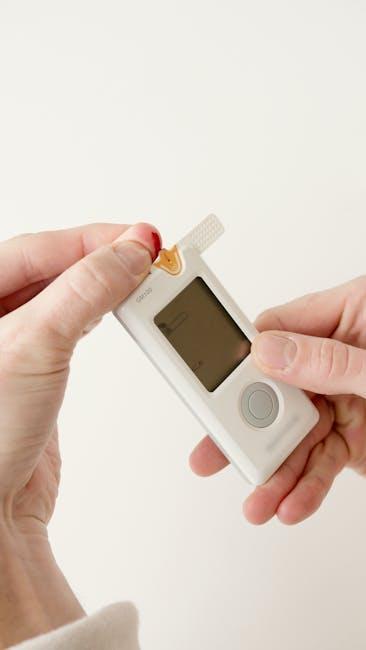
Managing diabetes is a daily challenge for millions of people around the world. From monitoring blood sugar levels to watching what you eat, there are constant factors to consider when living with this condition. One crucial element of managing diabetes is understanding the role of insulin in the body.
Insulin is a hormone produced by the pancreas that helps regulate blood sugar levels. For people with diabetes, their bodies either do not produce enough insulin or do not use the insulin they produce effectively. This leads to high blood sugar levels, which can have serious health consequences if not properly managed.
There are two main types of diabetes: type 1 and type 2. Type 1 diabetes is an autoimmune condition in which the body attacks the cells in the pancreas that produce insulin. This results in little to no insulin production and requires daily insulin injections to manage blood sugar levels. Type 2 diabetes is a condition in which the body becomes resistant to the effects of insulin or does not produce enough insulin to meet the body’s needs. It is often managed through a combination of medication, diet, and lifestyle changes.
Insulin plays a crucial role in managing diabetes for several reasons. Firstly, insulin helps regulate blood sugar levels by allowing glucose (sugar) from the food we eat to enter the cells of the body and be used for energy. Without enough insulin, glucose builds up in the bloodstream, leading to high blood sugar levels. Over time, high blood sugar levels can damage blood vessels and nerves, increasing the risk of complications such as heart disease, stroke, kidney disease, and nerve damage.
Secondly, insulin helps prevent hyperglycemia and hypoglycemia, both of which can have serious consequences for people with diabetes. Hyperglycemia, or high blood sugar, can cause symptoms such as increased thirst, frequent urination, fatigue, and blurry vision. If left untreated, it can lead to diabetic ketoacidosis, a life-threatening condition that requires immediate medical attention. Hypoglycemia, or low blood sugar, can cause symptoms such as sweating, shaking, confusion, and dizziness. Severe hypoglycemia can lead to seizures, coma, or even death if not treated promptly.
Thirdly, insulin plays a key role in managing diabetes-related complications. People with diabetes are at increased risk of developing cardiovascular disease, kidney disease, eye problems, and nerve damage. By optimizing insulin levels and blood sugar control, individuals can reduce their risk of developing these complications and improve their overall quality of life.
In addition to its role in managing blood sugar levels, insulin also helps regulate metabolism and energy storage in the body. When insulin levels are low, the body switches to burning fat for energy, leading to weight loss. In contrast, when insulin levels are high, the body stores excess glucose as fat, leading to weight gain. For people with diabetes, finding the right balance of insulin and diet is essential for maintaining a healthy weight and managing blood sugar levels.
There are several different types of insulin available for managing diabetes, each with its own onset, peak, and duration of action. Rapid-acting insulin is taken before meals to help control blood sugar spikes after eating. Short-acting insulin is taken before meals to help control blood sugar levels throughout the day. Intermediate-acting insulin is taken once or twice a day to help control blood sugar levels between meals. Long-acting insulin is taken once a day to provide a steady baseline of insulin throughout the day and night.
In addition to insulin injections, there are also other methods of delivering insulin, such as insulin pumps and insulin pens. Insulin pumps are small devices that deliver a continuous dose of insulin throughout the day and can be programmed to deliver additional doses of insulin before meals. Insulin pens are pre-filled devices that allow for easy and convenient insulin administration.
Monitoring blood sugar levels is an essential part of managing diabetes and insulin therapy. By regularly checking blood sugar levels at home using a blood glucose meter, individuals can track how their bodies respond to insulin, medication, diet, and physical activity. This information can help them make informed decisions about their diabetes management plan and adjust their insulin doses as needed.
In conclusion, insulin plays a crucial role in managing diabetes by regulating blood sugar levels, preventing hyperglycemia and hypoglycemia, managing complications, and controlling metabolism and energy storage. By understanding the importance of insulin in diabetes management and working closely with healthcare providers to optimize insulin therapy, individuals can take control of their diabetes and improve their quality of life. It is essential for people with diabetes to monitor their blood sugar levels regularly, adhere to their treatment plan, and make lifestyle changes to manage their condition effectively. With the right support and resources, living with diabetes can be manageable, and individuals can lead healthy and fulfilling lives.

















